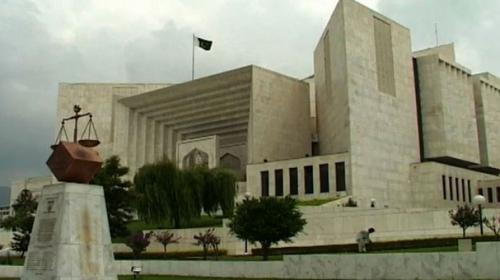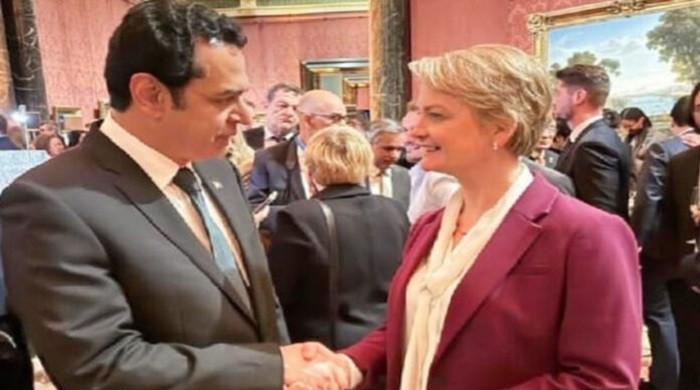Legal experts hail SC ruling on 18th, 21st amendments
ISLAMABAD: Legal experts and analysts largely welcomed the verdict by the Supreme Court on Wednesday rejecting pleas challenging the 18th and 21st amendments and ruling in favour of military courts....
August 05, 2015

The prime minister's Special Assistant Advocate Ashtar Ausaf Ali welcomed the apex court's decision, and said that the ruling would prove to be a major turning point in the political history of the country.
Renowned legal expert SM Zafar said it appeared that the military, lawmakers and the judiciary were on the same page regarding terrorism.
“Two things must have influenced the honorable judges: one that the military courts and the (21st) amendment are only for two years. And that they are not under any individual's discretion but through a constitutional amendment which ensures they will cease to exist after two years. This must have satisfied them as well as the fact that this amendment was passed unanimously by Parliament,” said SM Zafar.
“The military, which initiated action against terrorists, Parliament, whose resolution created space for establishment of military courts, and now the Supreme Court's decision have proved to me that the military, Parliament and Supreme Court are all on the same page regarding terrorism,” he added.
The time has come for the nation to also unite under this decision, said the senior legal expert.
Commenting on the divided vote on the petitions, the PM's Special Assistant Barrister Zafarullah Khan said that a difference of opinion among judges is always present in such major legal cases.
“If we want to make unanimous decisions, then we will have to differentiate between a military unit and the Supreme Court. Our mindset, which does not tolerate difference of opinion, needs to be changed,” said the senior lawyer.
Legal expert and senior Supreme Court judge Akram Sheikh stressed upon the need to reform the existing criminal justice system in Pakistan.
“We have never reviewed or improved our criminal judicial system. Our governments prefer symptomatic treatment and we run our day-to-day policy on the basis of ad-hocism. I believe that our system is capable enough that if we bring durable and permanent reforms then there is no need for military courts,” he said.
Legal expert Babbar Sattar said the apex court's decision proved that it cannot interfere in laws passed unanimously by elected representatives.
“When it has been written in the Constitution, then can a 17-judge bench second-guess the wisdom of an amendment passed unanimously by Parliament? This was the decision that the Supreme Court had to take. And they have decided that if Parliament passes something by two-thirds majority then we cannot interfere in their decision,” he said.
Sattar said that the dissenting view of some judges showed was a positive sign.
“There was also a minority opinion. Those judges who opposed the ruling show that there was some weight in the other side's argument as well. And it is a positive sign that there was a divided opinion, because if all 17 judges give the same opinion then it may appear as if they were being dictated by someone. I think this is a welcome decision,” he said.











